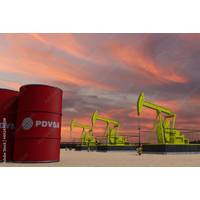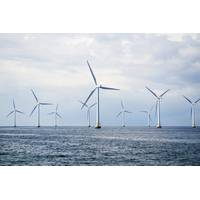Gulf as oil above $40; Egypt May Attract Foreigners
Stock markets in the Middle East may edge up on Sunday after oil prices steadied over $40 a barrel and global equity markets ended last week on a strong note.
Brent crude settled at $40.39 on Friday, and was up 4 percent for the week. The International Energy Agency said on Friday that the oil market may have found a bottom.
Meanwhile, all three major U.S. stock indexes registered a fourth straight week of gains, while MSCI's all-country world stock index rose 1.8 percent on Friday as investors reassessed this week's stimulus measures by the European Central Bank.
Last week Cairo's main index registered a 7.8 percent gain and broke above the February peak of 6,216 points, leaving it technically bullish. The revival of risk appetite towards Egyptian stocks, especially among foreign traders, followed actions by the central bank to boost liquidity in a dollar-starved economy.
Iron and steel firms may have further to rise after the government said on Wednesday it would reduce the price at which it offers natural gas to steel and iron factories to $4.5 per one million thermal units from $7.
Ezz Steel soared 20 percent to 8.13 Egyptian pounds on Thursday in its heaviest trade since November 2013 in an initial response to the news; brokerage Prime Holding estimated fair calue for the stock at 15.01 pounds under the new gas price structure, and classified it a "buy".
But yields on Egypt's six-month and one-year Treasury bills rose at Thursday's auction, a sign that investors are factoring in a higher possibility of an interest rate hike, a currency devaluation or both.
Major stock markets in the Gulf have rallied at least 8 percent since mid-February, buoyed by a belief that oil prices have bottomed out, although they ended last week on a weaker note as investors booked profits in speculative and volatile stocks.
Now investors may focus on defensive plays that are seen as best able to cope with this year's expected economic slowdown in the region.
"During a slowing business cycle, investors tend to look for value buys in the defensive or non-cyclical sectors," said a Jeddah-based portfolio manager. Sectors such as education and healthcare, where the government will continue to offer support, are well-positioned, he added.
(Reporting by Celine Aswad; Editing by Andrew Torchia)



